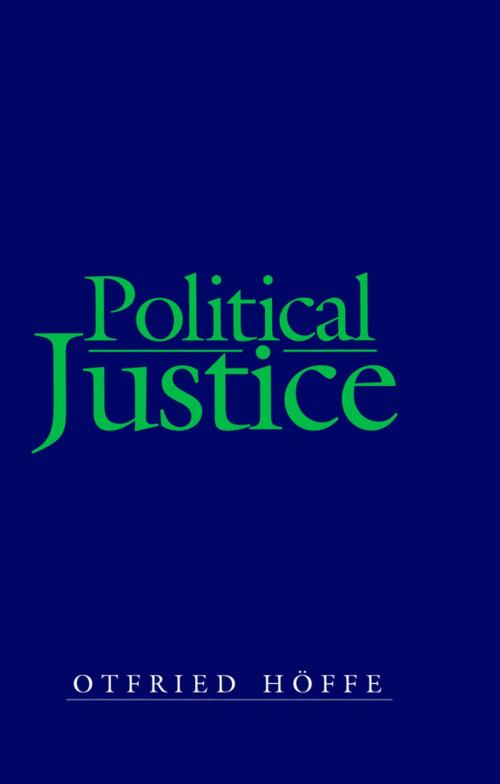Political Justice
Foundations for a Critical Philosophy of Law and the State
Nonfiction, Social & Cultural Studies, Political Science| Author: | Otfried Höffe | ISBN: | 9780745694771 |
| Publisher: | Wiley | Publication: | October 7, 2015 |
| Imprint: | Polity | Language: | English |
| Author: | Otfried Höffe |
| ISBN: | 9780745694771 |
| Publisher: | Wiley |
| Publication: | October 7, 2015 |
| Imprint: | Polity |
| Language: | English |
Otfried Höffe is one of the foremost political philosophers in Europe today. In this major work, already a classic in continental Europe, he re-examines philosophical discourse on justice - from Classical Greece to the present day.
Höffe confronts what he sees as the two major challenges to any theory of justice: the legal, positivist claim that there are no standards of justice external to legal systems; and the anarchist claim that justice demands the rejection and abolition of all legal and state systems.
Höffe sets out to continue the 'philosophical project of modernity', the legitimation of human rights, and their guarantee by the state, while at the same time rehabilitating the classical theory of political justice represented by Plato and Aristotle. He questions the success of the positivists in avoiding extra-legal normative claims, and casts doubt on the plausibility of their criticism of the Natural Law tradition. Most anarchists, he argues, rely on an uncritical assumption that social institutions other than states and legal orders do not coerce.
In Höffe's view, some coercion is unavoidable, and the grounds for its justification must be examined. Principles of justice will be those principles which define fundamental rights, and which must be enforced if rights are to be respected.
Otfried Höffe is one of the foremost political philosophers in Europe today. In this major work, already a classic in continental Europe, he re-examines philosophical discourse on justice - from Classical Greece to the present day.
Höffe confronts what he sees as the two major challenges to any theory of justice: the legal, positivist claim that there are no standards of justice external to legal systems; and the anarchist claim that justice demands the rejection and abolition of all legal and state systems.
Höffe sets out to continue the 'philosophical project of modernity', the legitimation of human rights, and their guarantee by the state, while at the same time rehabilitating the classical theory of political justice represented by Plato and Aristotle. He questions the success of the positivists in avoiding extra-legal normative claims, and casts doubt on the plausibility of their criticism of the Natural Law tradition. Most anarchists, he argues, rely on an uncritical assumption that social institutions other than states and legal orders do not coerce.
In Höffe's view, some coercion is unavoidable, and the grounds for its justification must be examined. Principles of justice will be those principles which define fundamental rights, and which must be enforced if rights are to be respected.















